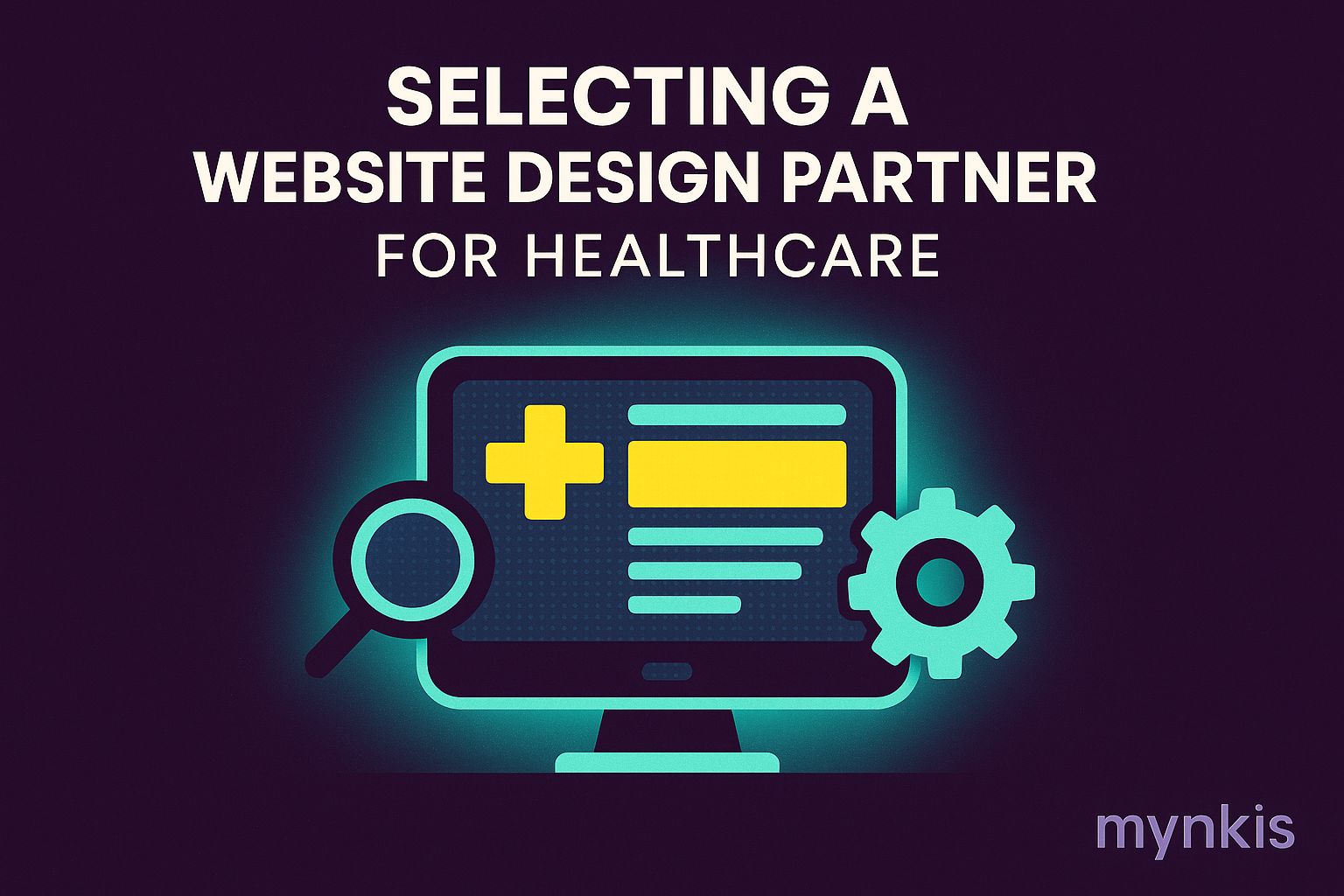Schedule a Demo
Choosing the right website design company is more than just a business decision for healthcare providers; it's a cornerstone in enhancing patient care and streamlining operations. The online presence of your clinic or hospital needs to not only look good but also comply with strict regulations like HIPAA, ensuring security and privacy for all patient data. Let's delve into the critical considerations that should guide your selection process for a website design partner who can deliver tailored, secure, and effective digital solutions.
When I sit down with clients from the healthcare sector, the first thing we address is compliance. Your website designer must be well-versed in healthcare laws like HIPAA. In my experience, choosing a company with a track record in this space ensures that every aspect of your site—from patient portals to appointment booking systems—meets the necessary regulatory standards. This peace of mind is invaluable, and selecting a provider who proactively designs with compliance in mind can save you considerable headaches down the road.
Security is non-negotiable in the digital age, especially in healthcare. Patient data protection is paramount. I recall working with an operations manager who implemented an award-winning security system after a brief but costly data breach. Their lesson? A dedicated security approach that goes beyond the basics, including regular audits and advanced encryption, is crucial. Your website design partner should demonstrate strong security practices not just at launch, but throughout your ongoing partnership.
The visual design and user experience of your website can greatly impact patient engagement. A good design not only reflects your brand but also makes it easy for patients to find what they need, from appointment scheduling to accessing test results. I've seen firsthand how a well-designed site can improve patient satisfaction and reduce administrative workload. When evaluating potential partners, look for a portfolio that demonstrates creativity, but also usability for various devices and demographics.
Your chosen partner should offer seamless integration with your existing systems. I often emphasize to healthcare execs the importance of this capability—how it ensures that patient data flows smoothly across platforms, eliminating the need for manual data entry and reducing errors. Whether it's integrating with your EHR, CRM, or scheduling software, the right website design company will ensure that the digital ecosystem works cohesively for better operational efficiency.
Healthcare evolves rapidly, and your digital infrastructure should too. Scalability is key when choosing a website design company. I once advised a CEO to consider scalability as a primary factor, a decision that paid dividends when their clinic expanded unexpectedly. The best partners will design with growth in mind, ensuring your website can handle increased traffic and new functionalities without a complete overhaul.
Ongoing maintenance and support are often overlooked yet are critical to the long-term success of your website. I've encountered clinics that faced substantial downtime because their initial developer wasn't responsive. It's essential to secure a website design company committed to regular updates and immediate assistance for issues that arise. This ongoing support not only keeps your site secure and up-to-date but also allows for enhancements based on user feedback and evolving technology.
In my consultation with healthcare providers, I often stress the importance of performance tracking. An insightful analytics system can offer data on site visits, user engagement, and conversions. This isn't just about numbers—it's about gaining insights that can help you improve patient services. Your design company should set you up with these tools and be able to guide you through what the data means and how to use it effectively.
Your website represents your healthcare institution's brand, and every element must align with your branding strategy. I've witnessed how a consistent and engaging web presence can build trust and attract new patients. Your design partner should have the skills to translate your brand values into the digital space effectively. This means they need to understand how to communicate healthcare services in a way that resonates with your audience.
Personalized experiences are increasingly significant in healthcare. A tailored website design that accounts for different patient demographics or conditions can improve patient satisfaction drastically. I recall working with a designer who implemented dynamic content based on patient profiles, resulting in better engagement. The right company will help craft a user experience tailored to the unique needs of your patients.
Selecting a website design company also involves a discussion about budgets and expected returns. I've assisted healthcare leaders in constructing ROI models that take into account not just the upfront cost but also the potential for increased patient acquisition, reduced admin costs, and enhanced patient satisfaction. Remember, sometimes spending more initially can lead to better outcomes and higher ROI in the long run, based on available research, though individual results may vary.
I've seen the value in compelling website design proposals, as they help healthcare executives understand exactly what they're investing in. Your potential partner should present a clear vision for your website that aligns with your clinic's or hospital's strategic goals. A detailed proposal includes timelines, costs, and a breakdown of deliverables. It's also an opportunity to assess how well the company listens to and incorporates your feedback, an indicator of a successful partnership.
Lastly, it's always wise to consider the expert's voice. Companies like the American Medical Association or respected journals in healthcare can offer insights into current website design standards and technologies. Additionally, case studies from reputable healthcare entities, such as Mayo Clinic or Cleveland Clinic, can shed light on which design partners excel in delivering innovative and secure web solutions tailored for healthcare institutions.
